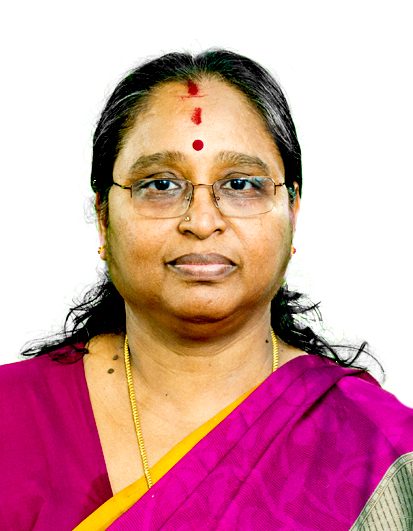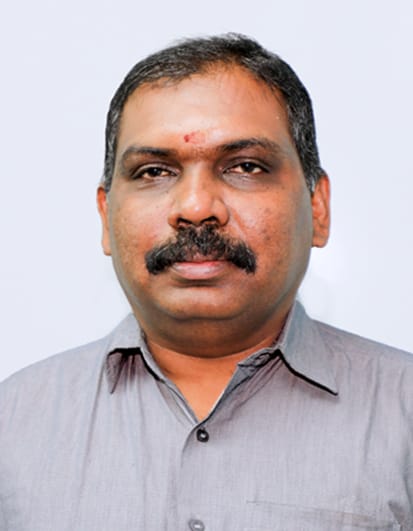M.Tech (Working professionals / Regular)
-
S.No. Name of the Programme Department 1 M.Tech. in Artificial Intelligence and Machine Learning Computer Science and Engineering 2 M.Tech. in Augmented and Virtual Reality Educational Media and Technology 3 M.Tech. in Engineering Education Education 4 M.Tech. in Infrastructure Engineering and Management Civil Engineering 5 M.Tech. in Mechatronics Mechanical Engineering 6 M.Tech. in Power Electronics and Drives Electrical & Electronics Engineering 7 M.Tech. in VLSI Design and Embedded Systems Electronics and Communication Engineering 8 M.B.A. in Business Analytics Rural and Entrepreneurship Development
Online Degree Programme
-
S.No. Name of the Programme Department 9 M.B.A in Management Rural and Entrepreneurship Development 10 PG Diploma in Guidance and Counselling Education 11 PG Diploma in Entrepreneurship Development Rural and Entrepreneurship Development 12 PG Diploma in AI and ML Computer Science and Engineering
Ph.D Programme
Ph.D Programmes are offered in three categories:
- Full-Time Mode
- Part-Time Mode
- Executive Ph.D
These programmes are available under the following Schools:
- Faculty of Engineering and Technology
- Faculty of Education
- Faculty of Management
Watch the video to know more about the admission program.
-
-
PG Certificates in each discipline, based on the earning of 20 credits
-
Additionally, the institution will offer Ph.D. programmes in Core Engineering disciplines, Management, Education, and Humanities and Sciences.
-
PG Curricula are designed with multiple entry and exit in alignment with NEP 2020. Learners who earn 20 credits will receive a PG Certificate, 40 credits will earn them a PG Diploma, and 80 credits will result in a PG degree in their chosen specialization.
-
A unique feature of NITTTR Chennai’s program is that it enhances teaching skills alongside core technical competencies. The academic programmes have the flexibility of getting a PG degree with Minor or Honours if the candidates acquire an additional 09 credits in other domains or the same domain respectively.
-
PG Degree with Minors or Honours (80 + 9 Credits) PG Degree (80 Credits) PG Diploma (40 Credits) PG Certificate (20 Credits) -
The PG and Ph.D. regulations outline the detailed admission requirements. Faculty members working in Government, Government-Aided, and Private institutions may pursue the PG programmes in Fractal Mode. In this mode, training programmes attended will be credited towards the programme’s credit requirements. A fractal is an intricate, self-repeating pattern observed at different scales. They are generated by repeating a straightforward process in a continuous feedback loop. This approach facilitates faculty members to earn credits for the training programme and eventually redeem those credits towards the degree programme. It is in accordance with NEP 2020, Multiple Entry and Multiple Exit acquire degree at the level of 6.5 and 7 as per NCrF.
Fractal Academics
-
Fractal geometry showcases patterns at various scales, and this multi-scale approach is similarly applied in fractal academics at NITTTR Chennai. The institution offers professional development programs at different levels (Silver, Gold, and Platinum). The Silver-level courses provide an overview of the subject (1 to 1.5 credits), while the higher-level courses at Gold or Platinum levels (2 to 4 credits) provide functional expertise in the subject.
-
Both the introductory and advanced courses cover similar topics, but with varying degrees of detail, hence the name "fractal academics." A typical 3-credit course consists of 42 lecture hours, and NITTTR Chennai proposed to offer programmes at micro-credit levels such as 0.5, 1, 1.5, 2, 3, and 4 credits, corresponding to 7, 14, 21, 28, 42, and 56 contact hours, respectively. The fractal mode of PG programmes will be offered in trimesters i.e. in three phases.
-
-
Phase-1: August to December
-
Phase-2: January to April
-
Phase-3: May to July
-
-
This innovative approach provides flexibility, enabling learners to tailor their education to their needs and interests while ensuring comprehensive learning opportunities. The upskilling programme eventually leads to earning a degree.
-
Fractal academics at NITTTR Chennai not only transform how courses are structured but also offer a range of advantages, such as:
-
-
Promoting Interdisciplinary Education: Fractal academics encourage cross-disciplinary learning, allowing learners to broaden their knowledge across various fields.
-
Facilitating Faculty Upskilling: The programmes enable faculty members to stay current with the latest developments and thrust areas, enhancing their teaching and research capabilities.
-
Broadening Access: The approach is open to all learners, providing greater breadth and flexibility in course selection.
-
Credit Accumulation: Learners can accumulate credits from a wide array of courses, tailoring their coursework and choosing across departments. For example, faculty from the Civil department can augment their skill set in Additive Manufacturing, Drones, AI, and ML.
-
Offering Techno-Pedagogy Courses: The programmes include a large selection of techno-pedagogy courses, such as Engineering Education, Pedagogy, Accreditation, Media, and Health and Well-being.
-
Enhancing Research Preparedness: Improved access to a variety of courses increases exposure and preparedness for research.
-
Fostering Synergy in Projects: The structure creates a strong foundation for product development and collaborative projects.
-
-
A teacher enhances their skills by balancing technical and teaching competencies, better serving the educational ecosystem. The system is designed to evolve continuously, keeping pace with changing times and the evolving aspirations of learners.
Chairperson, Faculty of Engineering and Technology
-
Dr.E.S.M. Suresh,
Professor,
Department of Civil Engineering
Head - Extension Centre Kalamaserry
Chairperson, Faculty of Education
-
Dr.S.Renukadevi,
Professor & Head
Department of Education

Chairperson (i/c),Faculty of Management
-
Dr.K.S.Giridharan,
Professor,
Department of Rural Entreprenurship Development
Head - Department of Rural Entreprenurship Development


